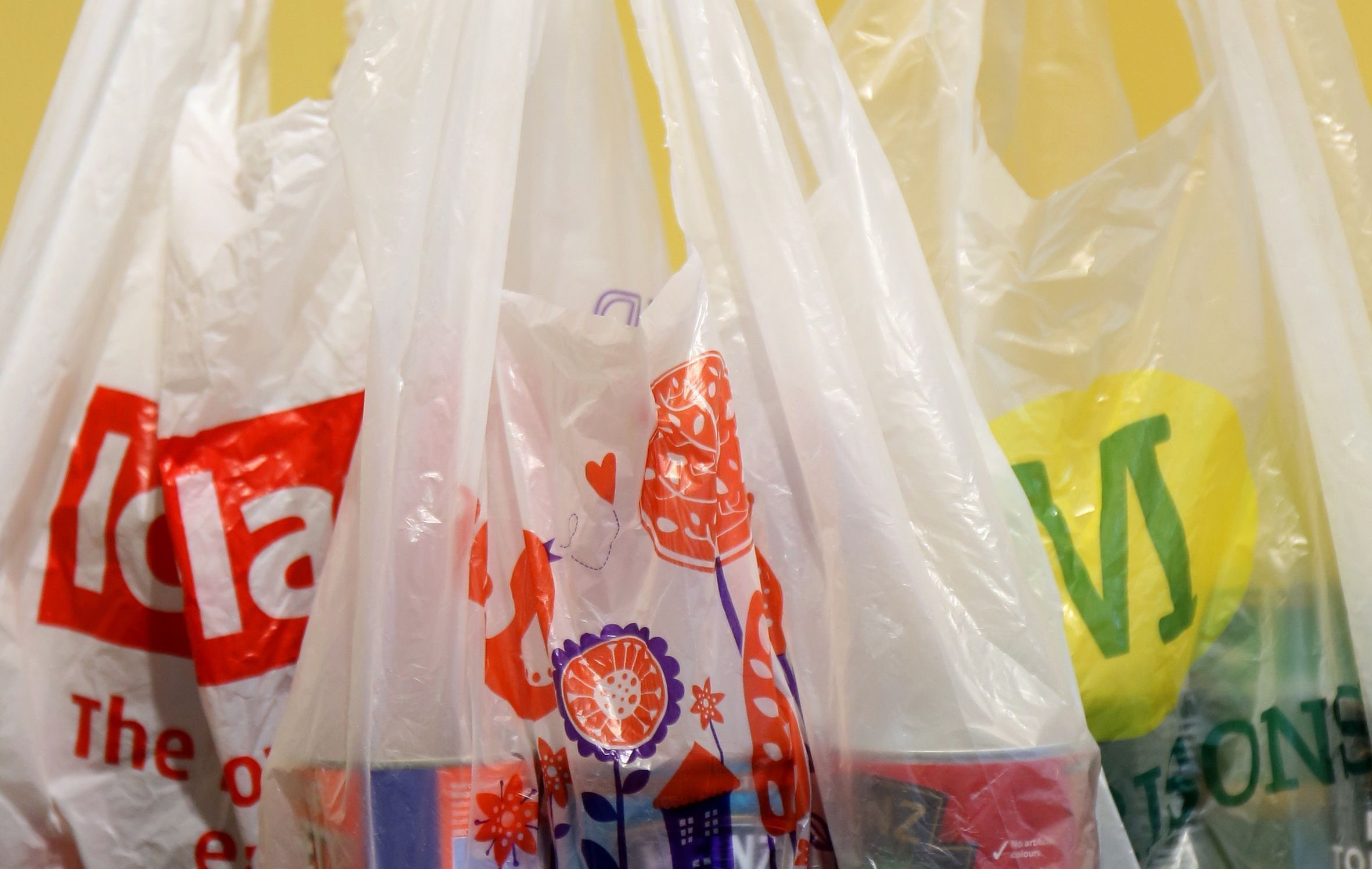
CAMPAIGNERS are calling for charges for plastic bottles and disposable coffee cups after figures showed the 5p carrier bag levy had dramatically reduced use.
Disposable carrier bags issued by the seven biggest supermarket chains have declined by 86% since the charge was introduced in 2015, official figures showed.
Estimates suggest the seven retailers issued 7.6 billion single-use bags in 2014 but that figure was down to just over a billion in 2017-18.
- The figures suggest that in total Asda, Marks and Spencer, Sainsbury’s, Tesco, the Co-operative Group, Waitrose and Morrisons sold the equivalent of 19 5p bags per person across the UK, down from 24 last year.
Up to a third of supermarket packaging is not widely recyclable
In the face of growing plastic pollution, meet Scotland’s eco-companies
Watch: Scotland’s wild beaches “knee deep” in plastic pollution
The total number of single-use plastic bags sold by all 249 retailers who reported in 2017-18 was 1.75 billion.
Donations from the bag levy to good causes amounted to over £58.5 million, based on figures from two-thirds of the retailers who voluntarily reported the information.
Environment Secretary Michael Gove said: “These figures demonstrate the collective impact we can make to help the environment by making simple changes to our daily routines.
“We want businesses to continue to look at what they can do to help improve our environment to leave it in a better state than we found it.
“It is only by working together we will reverse the rising tide of plastic waste finding its way into our rivers, seas and oceans and the catastrophic impact this is having on our marine environment.”
But campaigners called for the Government to go further to tackle the problem of plastic waste.
Rosie Cotgreave, from Friends of the Earth, said: “A 5p charge may not have sounded like much, but the plummeting number of single-use plastic bags demonstrates the difference that can be made by effective legislation, which is starting to make reusable shopping bags the new norm.
“Great as it is to see that so many less plastic bags are entering our environment, there is still a long list of other plastic nasties that are being used for moments before hanging around for centuries to come.
“Companies and governments must do more. It’s time legislation was extended to cover all other unnecessary single-use plastics, from straws to coffee cups.
“It’s important, however, that legislation works to phase out unnecessary plastic in the first place rather than just acting on plastic that’s already been produced.”
Labour MP Mary Creagh, chairwoman of the Commons Environmental Audit Committee, said: “The public has enthusiastically embraced the plastic bag charge since it was introduced in 2015, which is good news for the environment and our economy.
“Tens of millions of pounds has been raised for local and national good causes but there are concerns that some large retailers are retaining all or part of the charge.
“We need to encourage behaviour change for other single-use plastics such as plastic bottles and coffee cups to change habits and reduce litter.
“We could also look at introducing a take-back scheme to cut the two billion bags a year we still use even further.”

Enjoy the convenience of having The Sunday Post delivered as a digital ePaper straight to your smartphone, tablet or computer.
Subscribe for only £5.49 a month and enjoy all the benefits of the printed paper as a digital replica.
Subscribe